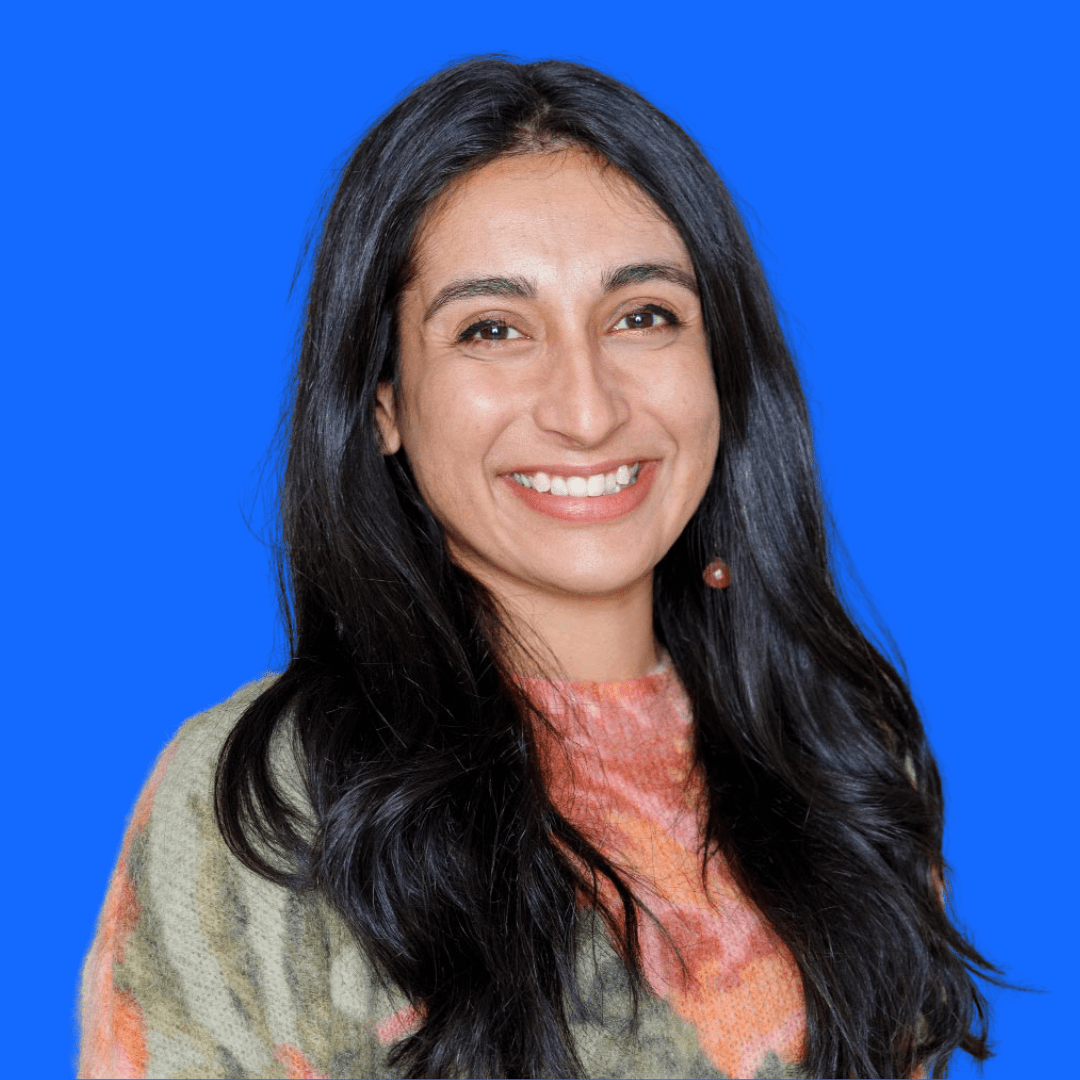The Crunchbase “Investor Spotlight Series” is comprised of stories, Q&As and thought-leadership pieces from investors making a difference in the venture capital ecosystem.
As an investor with Anthemis Group, Katie Palencsar leads the Female Innovators Lab in partnership with Barclays, which invests in early-stage female-founded fintech businesses. Previously, she founded and led the data SaaS company, Unbound Concepts.
In this Q&A, Palencsar discusses how she transitioned from founder to investor; what the fintech funding landscape looks like for women; and how her work with the Female Innovators Lab is doing things differently by funding and supporting female founders.
Q: How did you get into VC?
I’m an operator-turned-VC. I like to build new things: businesses, products, programs, teams, initiatives, funds or new revenue streams.
Previously, I founded and led a data SaaS company called Unbound Concepts from ideation to exit. The company’s data services, which also provided free software tools to 40,000-plus educators, were used by global distributors as well as privately owned and publicly traded publishers. The company was acquired by Certica Solutions in 2017. At that inflection point, I was working on a variety of projects, helping retired athletes with new tech and business opportunities, as well as having a moment to reflect on all I had experienced as a female founder. I realized two things really lit me on fire: early-stage companies (starting with a pitch deck and a dream); and driving capital and support to female founders.
When the opportunity came up at Anthemis Group to launch the Female Innovators Lab in partnership with Barclays, I was super intrigued because not only would it allow me to launch something new, but it would also allow me to work with early-stage companies where I could apply my operational experiences and expertise that would ultimately help and serve female founders.
Talk about some manifestation!
Q: Why did you choose to enter VC?
I didn’t really know what VC was until 10 years ago, so this wasn’t something I put in my high school yearbook highlights by any means. And in being on the other side of the table years ago as an operator, if you would have said I’d be doing this now, I would have said you were crazy. But the ecosystem has shifted so much in that time. Ten years ago it was unheard of for an investment firm to share portfolio diversity stats—and while there’s still massive amounts of work to do, this has completely shifted. And I feel both proud and excited to have been in the thick of the evolution of that experience for founders.
Having the opportunity to lead the Female Innovators Lab as its own fund with a dedicated group of people and resources alongside an established global fintech firm with a strong track record was super exciting.
Q: What issues in the VC world are you trying to solve?
In fintech, I feel like financial inclusion is thrown around a lot, but more importantly, we need to start with financial awareness. I grew up in a small town where the mindset was to save, save, save—don’t spend. There was really no advice beyond that, including investment.
I’m not saying don’t save your money, but if we’re going to talk about financial inclusion we first have to present an entire market of customers with opportunities to make money before shoving the idea of saving and investing down their throats. I think fintech is starting to do a lot of that and in some creative ways. Our portfolio companies, such as SwayPay, Addition, and First Boulevard, fit into that thesis but in wildly different ways.
On the underrepresented front, investing in female founders isn’t just about that, it’s also about helping first-time founders create a platform that will set them up for opportunities to grow their business, advance their career as a whole, and build a business of value. This creates more economic opportunities for women, which creates a virtuous cycle in continuing to participate in the ecosystem through various entry points as operators, as investors, as LPs. We’re not going to change 2.6 percent by simply writing more checks.
We have a company, DwellWell, in the portfolio that has recruited numerous female engineers that now hold stock options in the company. In addition to ensuring they are on market pay to their male counterparts, the equity piece is an opportunity to help shatter the wealth gap, which also prevents women from founding companies and investing in them. These are the kinds of by-products and virtuous cycle outcomes we’re hoping for in addition to funding returns.
It’s been awesome to see the culture that companies build, especially because we work with them in such early stages (often just a pitch deck), to see how companies evolve.
Q: Why did you start or choose the VC firm/fund you’re currently at?
As it happens with so many entrepreneurs, I was at a point in my career where I was wondering about what to do next. I was searching for the right fit. But the meetings I was having, where everyone looked the same, too much group-think, these were not the companies for me.
While I was searching for new opportunities I wrote down the three things I was looking for on a piece of paper and hung it above my computer:
- A focus on solving big problems
- Collaboration with smart dedicated people
- Uniqueness and diversity
Remember how I mentioned manifestation earlier? I think that pretty much sums it up.
Q: How did you network, find communities and make the connections you needed to get into VC?
I think this question gets asked a lot and I wish there was a slam-dunk answer, but it’s always a winding road. You need to research and seek out your network and community. I think that what helped me in this area is that I’m a super proactive person. I would also add that being in New York City has been critical too. I know a lot of people will say that’s because of the COVID-19 pandemic that is shifting—and it just might be—but for me at the time, New York was everything as it presented so much opportunity. And because of the relationships I have made here, I’m at a point where if a problem pops up or an opportunity arises, there is someone I can call to get their opinion, have them point me in the right direction, get their expertise or even direct me toward additional resources.
And finally, stop meeting and talking to all the same types of people. For the past 10 years, I’ve always been in some type of organization with a core group of women from a variety of backgrounds. These groups have changed from Activate Entrepreneur Group to Ellevate to now Chief Core Group. And I must admit, that’s a part of my job, and the stage of my career, that I really enjoy. I’m surrounded by colleagues in multiple industries, architecture, art, and education through these networks.
Q: What is your advice for other female VCs at the beginning of their journeys?
Do things that you’ve never done.
For women starting out in VC, try to create something of value and distinction to set yourself apart, whether it’s a blog, a research project, a podcast, creating a community, or just a new way of doing things in your industry. This can also help you develop a great entrepreneurial lens for what it’s like to “launch something.”
Q: What is the most valuable lesson you’ve learned in VC?
The VC vantage point is more interesting than just writing the checks. Firms have experience talking to companies all day long, they can see what is happening in the market, how it stacks up, and different approaches to a variety of problems; the backdrop that helps them look at businesses with different lenses, and experience seeing different hurdles that a business may run into from having a track record of an existing portfolio or even as previous operators themselves.
There are so many factors that go into getting funding for your business that need to be assessed before going forward. What is the investors’ thesis? Does it align with your business? Have they just done a lot of enterprise deals and are looking for more consumers or vice versa? Can they get enough target ownership with valuation? Are there conflicts in their portfolio that could arise later? It’s often not as straightforward as “yes” or “no” as one might think.
Q: What is your advice for entrepreneurs trying to make connections with VCs to raise funding?
Do your research. Talk to other founders. Look at what investors companies in your sector have raised money from.
Q: Do you have a favorite quote or “personal mantra” you use to keep yourself motivated?
Just because it’s a good idea doesn’t mean you should do it.
Q: What challenge are you most proud of overcoming in your career?
Quite frankly, if you look at the statistics and the profiles, I shouldn’t be where I am today as a woman. I didn’t attend an Ivy League school, I am a first-generation college graduate from a town with a 24 percent poverty rate, granddaughter of coal miners, and raised by a single mother. I think as a woman having earning potential to allow for individual financial independence has been transformative for me, and this driving force has really been shaped by my upbringing.
I would also say I’m often the “start with the back of the napkin” gal. So many times I’ve been given just a few objectives and told to go do that, go build that, put structure around that, make that happen. I’m proud to see these different things brought to life.
Q: How have you integrated your values and mission into your career and current position?
I was once told in an email exchange that I had “elegant toughness,” relied on because you resist complacency, are meticulous, and driven by thoughtful urgency and doing the right thing. No opportunity is squandered.
I felt honored to receive such a compliment but I also think I should get a tattoo that says “GRIT” to sum it all up.





